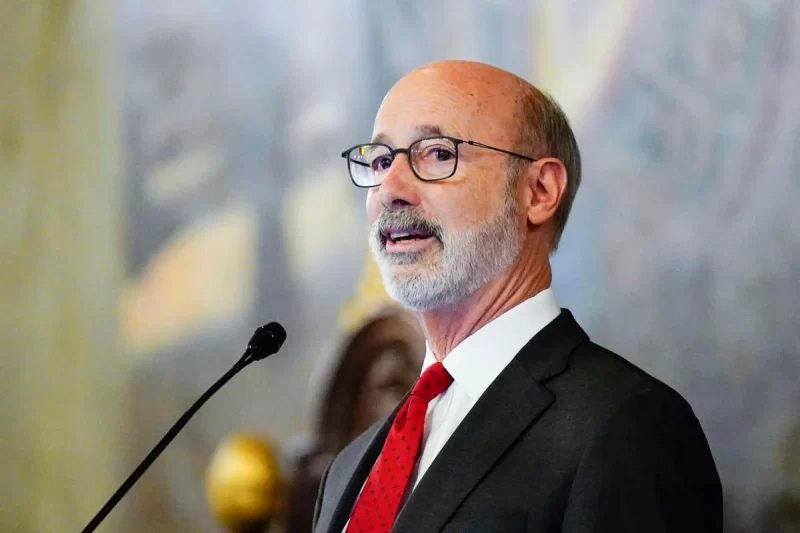By Anthony Hennen | The Center Square
(The Center Square) – Over the weekend, Democratic Gov. Tom Wolf vetoed a bill approved by the General Assembly that would prohibit premature release of a prisoner that has committed a violent offense while imprisoned.
The bill, known as “Markie’s law” and sponsored by Rep. Aaron Bernstine, R-Ellwood City, passed 41-9 in the Senate and 133-69 in the House. Wolf is term-limited, and headed out at the beginning of January; both chambers are majority Republicans.
Supporters argued the bill would make prisons safer and prioritize the public, while detractors argued it was too punitive and prescriptive.
“My legislation will postpone consideration of a violent inmate’s parole until an additional 24 months following the inmate’s minimum release date for each conviction for a violent offense while incarcerated,” Bernstine wrote in a legislative memo. “In addition, my legislation will postpone consideration of an inmate’s parole an additional 12 months if the inmate attempts to escape, smuggles contraband, or retaliates or intimidates witnesses while incarcerated.”
The inspiration for the bill came from a 2019 murder of 8-year-old Markie Mason by an inmate who was paroled after serving his minimum sentence. The inmate was convicted of two assaults on other prisoners during his imprisonment.
While Wolf sympathized with the intentions, his veto message raised concerns over the limitations on the authority of the Pennsylvania Parole Board.
“This legislation does not promote public safety, but instead proposes a mechanical and ineffective structure of mandatory parole denial, which is in effect a mandatory minimum by another name,” Wolf wrote. “This bill would result in automatic parole denial for much longer than 12 or 24 months regardless of the circumstances of the individual case.”
Wolf asserted the bill would cause longer denials because “in many cases, it takes years for a conviction to occur” if a prisoner commits violence in prison. He also noted that a broad definition for obstruction of justice could limit parole “though there is no evidence that such offenses have any relationship to successful reintegration.”
Republicans were highly critical of the veto.
“I am upset, disappointed and disgusted with the governor’s decision to veto this important, commonsense legislation,” Bernstine said in a press release. “This bill would have kept the most dangerous inmates from a premature release in order to protect our commonwealth residents and would have saved Markie’s life.”
Bernstine rejected Wolf’s dismissal of the bill’s public safety goal.
“How does this bill not promote public safety?” he asked. “The legislation is all about keeping criminals locked up so they can’t be harmful to society.”
Wolf has promoted his “criminal justice reform legacy” in recent weeks, focusing on second chances, pardons, reentry services, and lowering the prison population.
“We all deserve the opportunity to learn from our mistakes and do better tomorrow,” Wolf said in a press release. “I’ve prioritized criminal justice reform during my time in office because Pennsylvanians deserve true justice. I know that with a fresh start these individuals will capitalize on opportunities, contribute to society, and own success.”
